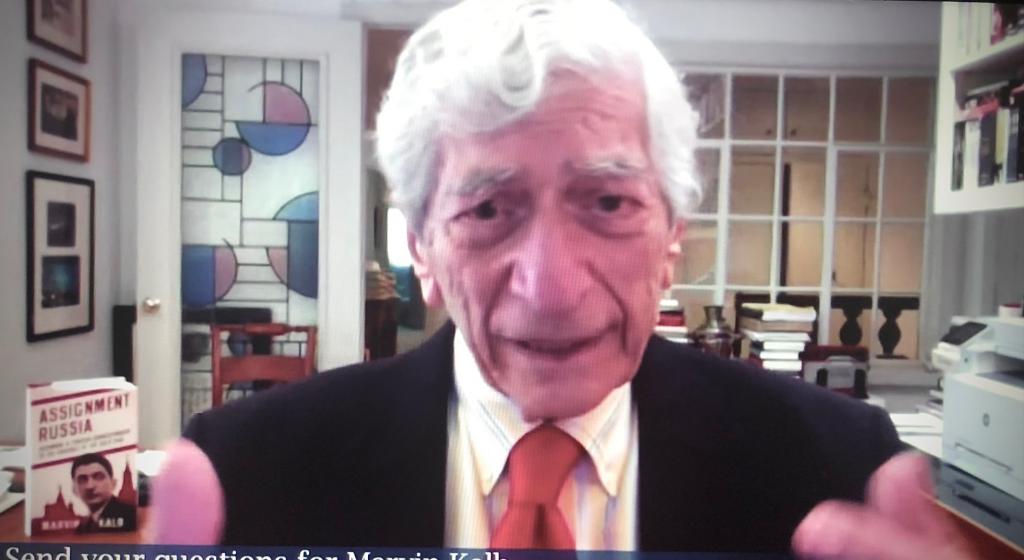Kalb kept his cool as CBS Moscow correspondent during Cuban Missile Crisis
As the CBS News Moscow correspondent in the thick of the Cold War, Marvin Kalb remembers well what was happening during the Cuban Missile Crisis in October 1962. But while the rest of the world saw it as an anxious moment when the world was close to nuclear war, Kalb said he was more serene.
Kalb was talking to former National Press Club President Mike Freedman about his latest book, Assignment Russia, a personal memoir about his days as a foreign correspondent. With a Ph.D. in Russian studies within reach and fluent in the Russian language, he was headed toward an academic career. And then, out of the blue, he got a call from legendary CBS newsman Edward R. Murrow in 1957, asking him to come to New York to talk about a job.
That’s how Kalb became the last correspondent Murrow personally hired. He launched a television news career that spanned decades as an international correspondent and for the past 26 years as the moderator of the Club’s foremost public affairs program, “The Kalb Report.”
But why was Kalb so serene at the height of the Cuban Missile Crisis?

“By that time, that I knew what the Russians were trying to say to the Americans as well as to their own people,” Kalb said during a Club Virtual Book Event. “The possibility of war went through my mind, but I did not feel we were going to war.”
Soviet Premier Nikita Khrushchev wanted to convince the Americans to abandon West Berlin, which he had described as “a bone in my throat.” He thought he could frighten the United States to do that by placing the missiles in Cuba.
“So, I saw this as diplomacy – very dangerous diplomacy, but not a step toward war,” Kalb said. “That made it easy for me.”
When his boss in New York asked him if he wanted to send his wife, Madeleine, to Scandinavia for a “shopping trip,” he turned down the offer because he was so sure there would not be war.
Looking back over the past few years of Russian-American relations, Kalb said he was “astounded” by how effective Russian propaganda has been in shaping politics in America. The Russians have engaged in propaganda since the beginning of the Soviet regime, he said.
“They are very good at taking ideas and twisting them, and then putting it out into the sixth dimension,” he said. “What they are doing now is using this old technique, pinning it to modern technology.”
But what’s astounding is how effective it has been.
“How could so many people in this country, raised in an atmosphere of freedom, where you are supposed to be aware of truth and know the difference between truth and a lie … How could it be that tens of millions of Americans are prepared to accept the Russian version of reality, then they are to accept an American version?”
The last election has shown how fragile democracy is, he said.
“It’s a war of democracy on one side and authoritarianism on the other,” he said. “It’s a battle being fought right in front of us.”
